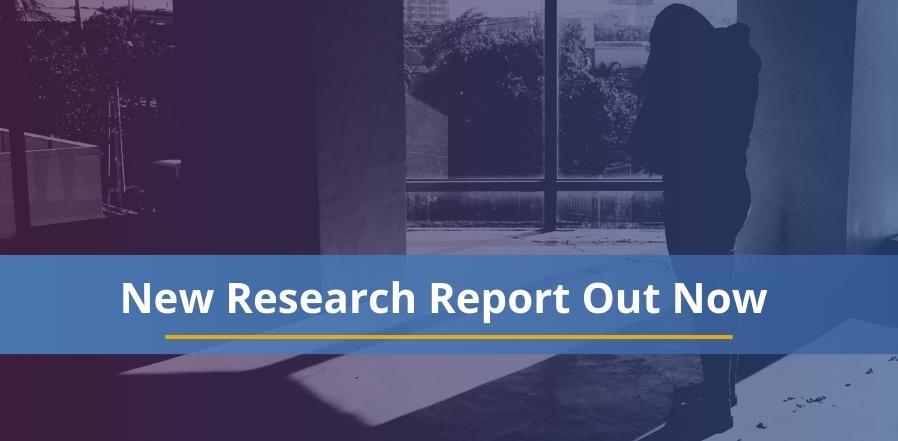The following is the executive summary of a newly-release research report by YWCA Cambridge. The full report can be read here.
Historically, women’s homelessness in Cambridge has been largely unacknowledged and therefore inadequately understood and addressed. This research paper aims to shed light and bring urgent change to the issue.
This research builds off the 2022 Project Willow Report, Don’t Tell Them You’re Homeless., which captured the voices of 61 women and gender diverse individuals experiencing or recently having experienced homelessness in Waterloo Region and the intersections of their experiences of homelessness with gender-based violence. To help paint a fuller picture of the situation in Cambridge in particular, this research project involved gathering voices of services providers and elected officials who are the people interacting the most with women experiencing homelessness and the issue of women’s homelessness more broadly.
Project Willow research outlines the layers of violence encountered by women experiencing homelessness, and how such experiences help us understand why, for instance, women will avoid the only shelter option in Cambridge because it is co-ed, why they forego basic needs, the kinds of safety rituals they will employ and how community attitude contributes to the choices they make.
Throughout this research, service providers shared their experience and insights as organizations in Cambridge who are directly or indirectly trying to support women experiencing homelessness. A number of trends emerged: women’s homelessness is glossed over as a community issue, Cambridge is a service desert for women experiencing homelessness, there is a lack of targeted resources for those individuals and organizations trying to provide support, there is a total lack of a continuum of housing leaving very few housing options for women, and there is a problematic reliance on services in other communities to support women.
The impacts of Cambridge being a service desert cannot be overstated. The lack of services responding to women’s homelessness means women are faced with a number of impossible decisions: they often have to choose between the care they have currently around them and receiving basic shelter; they have substantially less access to the supports they need than if they lived in other large urban centres in the Waterloo Region; and women experiencing homelessness, as well as the organizations trying to support them are left with the personal, political and community toll left by the daily shortcomings of a lack of adequate services.
Also important to consider – particularly when we’re presented with the opportunity to “get it right” in terms of establishing the necessary services in Cambridge – is the great divide between VAW (Violence Against Women) shelter models and women’s emergency homeless shelter models. Overall, our environmental scan revealed that there tends to be an average of five to eight times more programming and supports documented as being offered within VAW shelter models (not considering supports for children) than those provided in women’s emergency homeless shelter models.
A number of recommendations for how Cambridge can adequately address women’s homelessness came out of this research:
Rebuild trust with women experiencing hidden homelessness
Women and service providers in this research talked at length with examples of situations in the community that have inherently broken the trust between women experiencing homelessness and the community, including service providers. This trust needs to be established so women will seek out services as they become available.
Start the Housing Continuum
There are significant gaps along the housing continuum, first starting with emergency shelter, a place to help women stabilize as they move towards longer term housing options. Then, we need options for women to progress into as they move out of homelessness.
Address the service desert
Shelter is one step in addressing the service needs of women. Further planning, investment and execution is needed to develop the wrap-around services needed for women to address their past trauma, stabilize their health, work through addictions, stay safe from GBV, and be successful in maintaining their housing.
Leverage relationships to rapidly build along the housing continuum
There is opportunity for developers, nonprofit and public sector leaders and bureaucrats to come together to explore, plan, create incentives and generate enthusiasm for these types of projects in the community.
Invest in prevention programming in the community
In the spirit of preventing women’s homelessness (both from happening and escalating) in Cambridge, there is a need for an investment in programming that is designed to prevent homelessness both from happening and escalating.
Establish an equity lens in local decision making
Working with local levels of government and funders in the pursuit of equity through challenging assumptions and bias and building stronger knowledge bases when it comes to city planning, budgeting and social/community interventions.
Build empathy by reducing apathy
The dominant rhetoric in Cambridge around homelessness is working against the development of interventions, prevention work, and safety. A public education campaign, initiative, or conference, as well as related advocacy activities are needed to shift the community’s attitude, outward public opinion, political will, and apathy to a perspective that centers change and growth as a community.
We hope this report acts as a launchpad for our community to once and for all come together with the shared goal of acknowledging and working collaboratively across sectors to bring the much-need interventions to women’s homelessness in Cambridge.
For more information:
Kim Decker, CEO, YWCA Cambridge, k.decker@ywcacambridge.ca
Jen Gordon, Manager of Advocacy, YWCA Cambridge, j.gordon@ywcacambirdge.ca
For 75 years, YWCA Cambridge has been a leader in providing responsive programming and services that meet the changing needs of women, girls and gender diverse individuals. As a member agency of YWCA Canada, YWCA Cambridge is part of a national movement known as the country’s oldest and largest women’s multi-service organization, the largest national provider of shelter, literacy, life skills, employment and counselling programs, and is the second largest provider of child care services in Canada.

